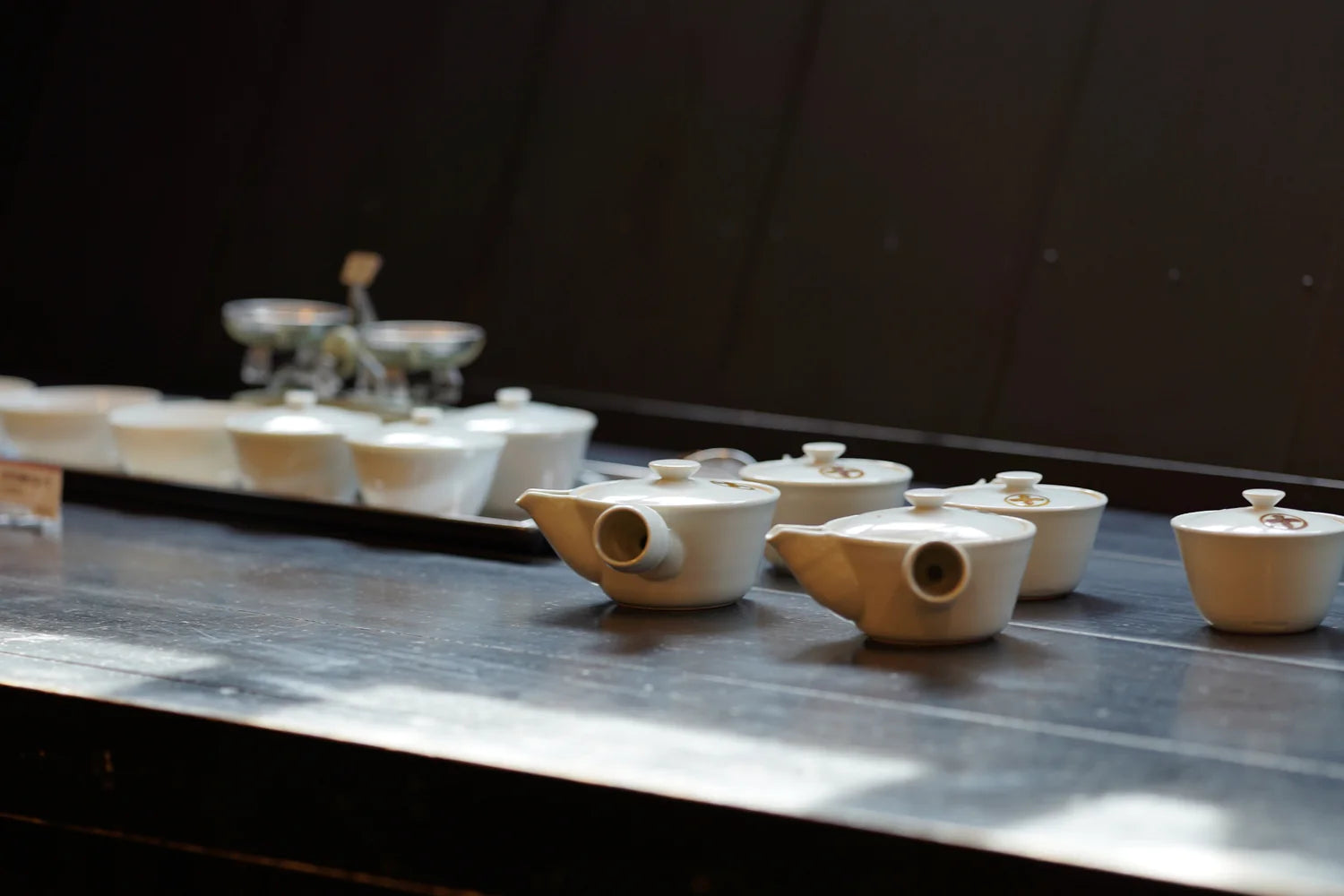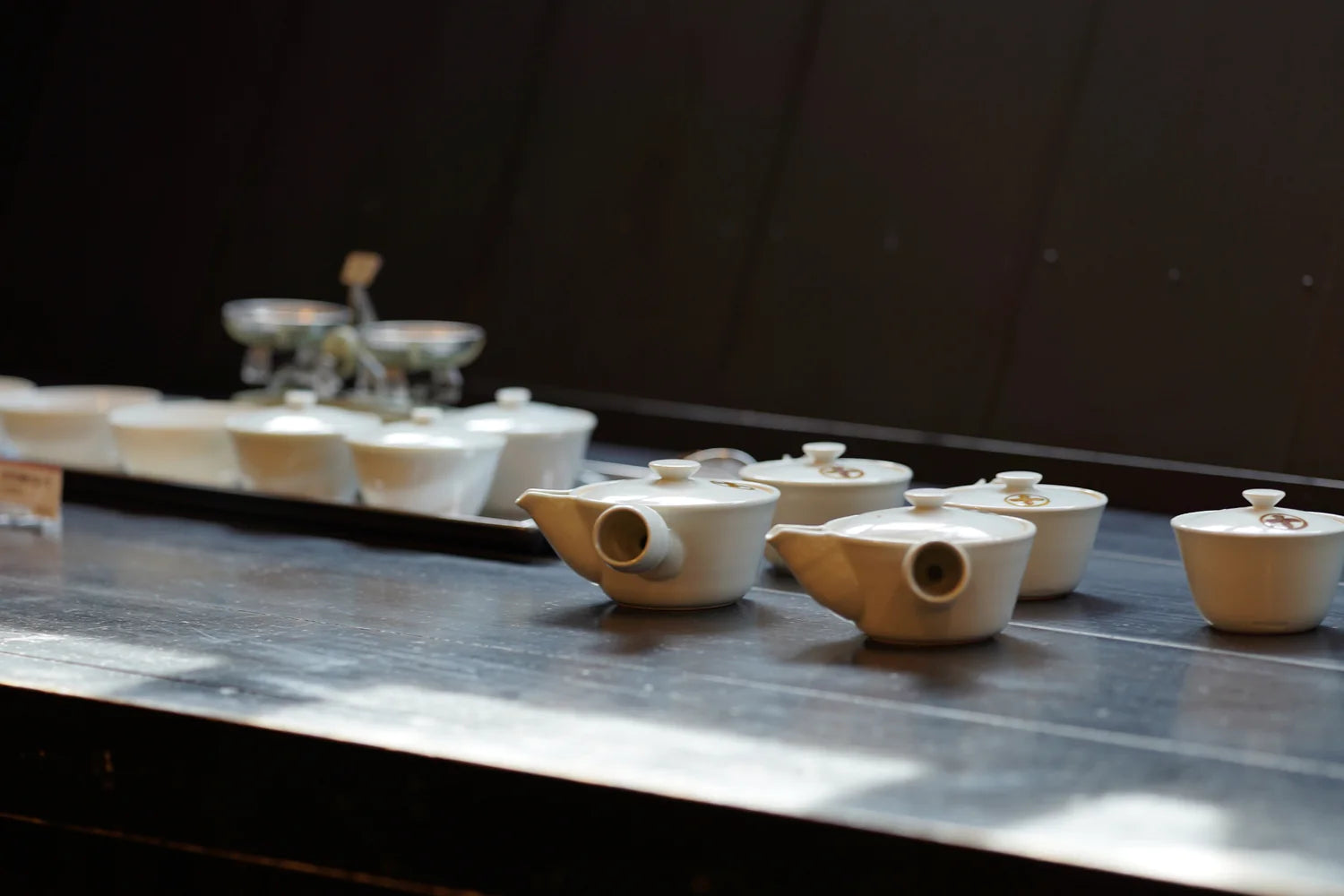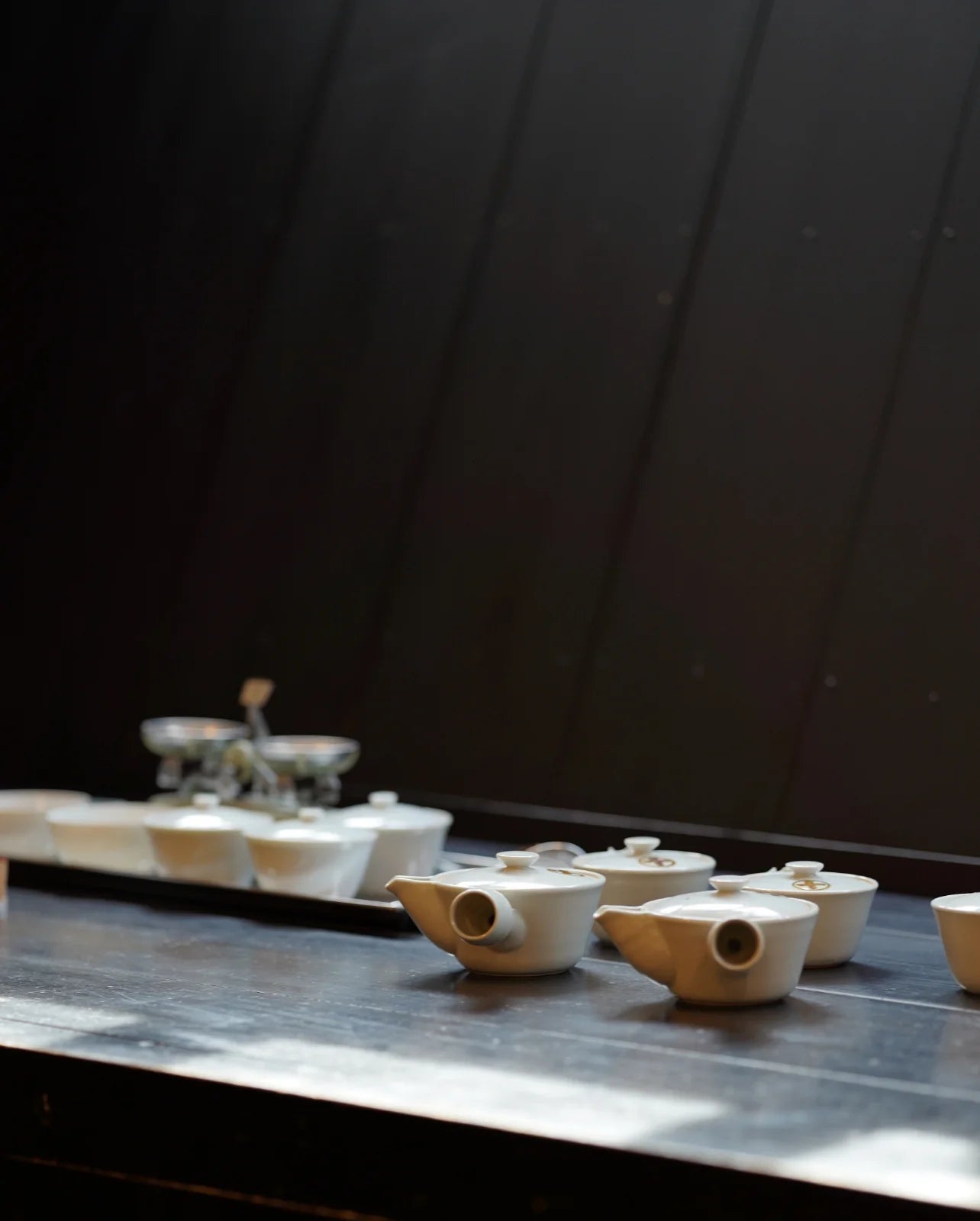how to make the perfect cup of tea
At our store, we offer tastings of recommended seasonal teas at the specialty tea counter. During these tastings, we often hear comments such as, "It tastes different at home" or "I can't quite get the same flavor." The flavor of the same tea can indeed change significantly depending on the brewing conditions, which may seem challenging at first. However, once you understand the "reasons" behind these changes, you can consistently brew delicious tea.
First, the taste and aroma of tea are determined by "the amount of tea leaves, the amount of water, the temperature of the water, and the steeping time." The amount of tea leaves and water mainly affects the strength of the flavor, while the water temperature and steeping time influence the amount of components that dissolve from the leaves.

hot water temperature and taste
In addition, the amount and content of the tastes released in the tea such as sweetness, bitterness and astringency differ depending on the temperature of the water. Components like amino acids, which contribute to the "sweet" and "umami" flavors, gradually dissolve even at water temperatures below 50°C. However, components like catechins, which contribute to the "bitter" and "astringent" flavors, do not dissolve much unless the water temperature is above 80°C. ...the water temperature of around 60°C will bring out the sweet and umami flavors first. ...Near-boiling water at 100°C will also release sweet components, but the bitterness will be more pronounced. Additionally, the aroma becomes more pronounced at higher water temperatures, so teas like hojicha and genmaicha become more fragrant and toasty when brewed with boiling water.

“Water” Changes the Taste of Tea


“Water” Changes the Taste of Tea
Excluding matcha, more than 99% of the components in tea brewed in a teapot is "water," while the amount of components such as theanine and catechins from the tea leaves is only 0.3% to 0.5%. Therefore, the quality of the water has a significant impact on the taste. Even if brewed under perfect conditions, if the water is not good, the taste will be ruined. Here are some guidelines for water suitable for Japanese tea.
- ・Slightly acidic soft water: The optimal pH is 6 to 8, and the hardness is around 30 to 100. Avoid using very soft or high-hardness water.
- ・Tap water or natural spring water can be used: However, make sure to bring it to a boil with the lid off for about 3 to 5 minutes.
- ・Water should not contain too much iron, salt, magnesium and calcium.




